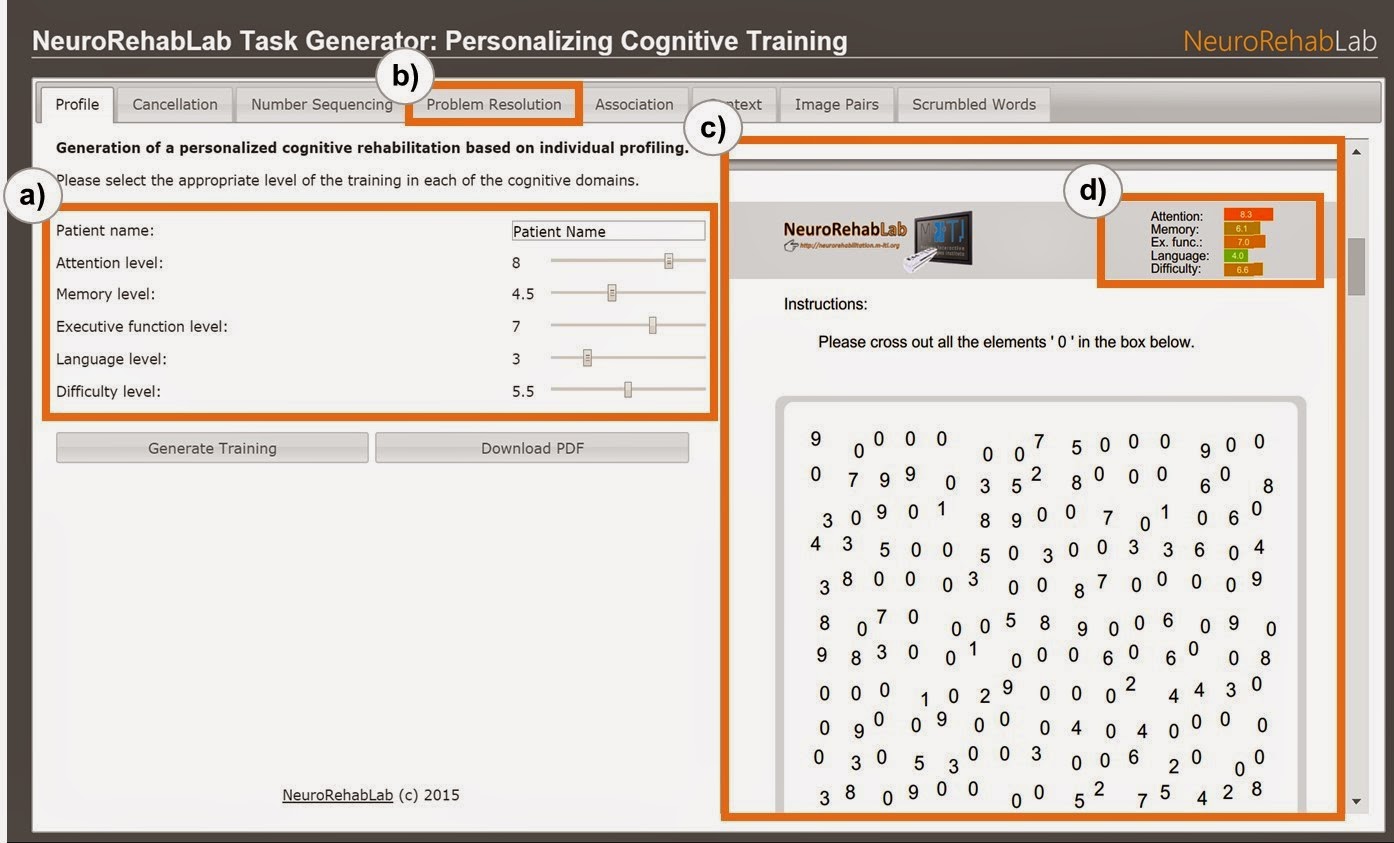NeuroRehabLab Task Generator - Personalizing Cognitive Training
- Overview
- Download Links
Still today, paper-and-pencil tasks are the most widely used in the cognitive rehabilitation field because of their acceptance, clinical validity and reduced cost. At the NeuroRehabLab we found out that it would be extremely useful to have a tool that could generate standard, accepted and validated paper-and-pencil tasks, yet customized to any patient profile. For this reason, we have created a free and world accessible web-based tool, the “NeuroRehabLab Task Generator”, for the generation of personalized cognitive training tasks.

At this moment, the NeuroRehabLab Task Generator can generate customized cognitive training based on the following tasks: Word search, Problem resolution, Numeric sequences, Association, Cancellation, Categorization, Comprehension of contexts, Image pairs, and Mazes. Through this tool clinicians can define appropriate parameters of training for Memory, Attention, Executive Functions, Language and difficulty and it automatically generates the requested personalized cognitive training tasks. Tasks can be created either individually by directly specifying the values of their parameters or as a full cognitive training program containing the whole set of personalized training tasks. Tasks are created procedurally and never two training tasks are exactly the same, allowing for the repeated use of this tool. In addition, the generated tasks have a graphical representation of their demands in each cognitive domain and difficulty, enabling clinicians to easily and continuously adapt the training to the patient’s needs.
This is an on-going work, and we expect to increase the number of tasks and available features over time.
Developed by: Sergi Bermúdez i Badia, Ana Lúcia Faria
Reference:
Faria, A., & Bermúdez i Badia, S. (2015). Development and evaluation of a web-based cognitive task generator for personalized cognitive training: a proof of concept study with stroke patients. REHAB 2015: 3rd Workshop on ICTs for Improving Patients Research Techniques. https://doi.org/10.1145/2838944.2838945 CITE DOWNLOAD
You can check out our website here: Task Generator Website
User Manual (PT) – Download Here
